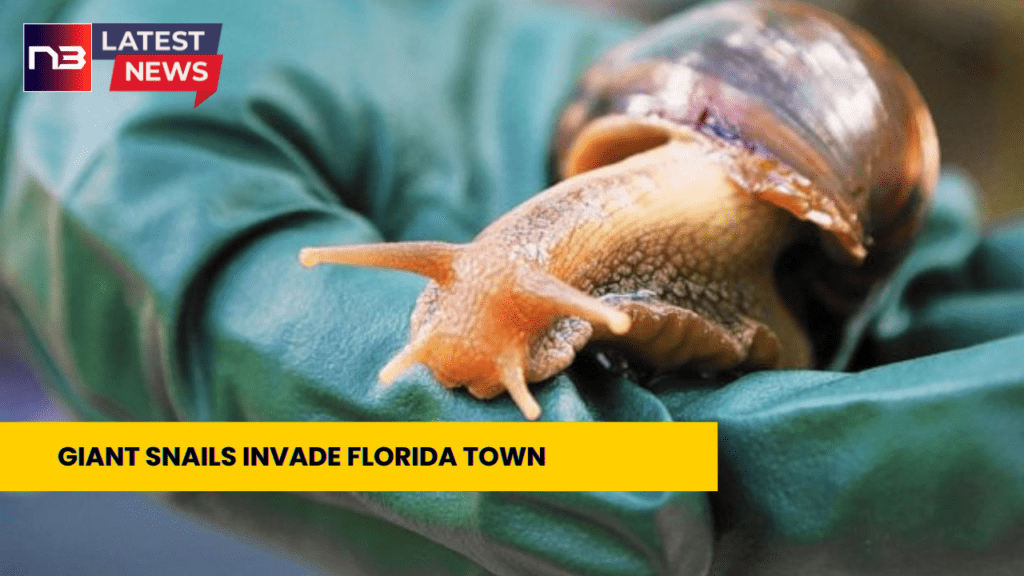South Florida is currently facing a severe problem with the invasive giant African land snail population, which has been detected in the Broward County’s Miramar community. This has led to a quarantine order being put in place by the Florida Department of Agriculture and Consumer Services to deal with the situation.
The giant African land snails are known to grow up to eight inches long and consume over 500 different types of plants, making them a significant threat to the state’s $8 billion agriculture industry. Additionally, these snails can chew through various materials such as stucco, plastic, recycling bins, and street signs while their shells can puncture tires. Moreover, these snails carry the parasitic rat lungworm, known to cause meningitis and significant health risks to humans, including paralysis, coma, or even death in serious cases.
The Florida Department of Agriculture is implementing an eradication plan that includes using snail bait and a pesticide that is safe for local plants. However, under the quarantine order, it is illegal to move the snails or any plants, plant parts, soil, or yard waste within or from the defined quarantine area without a compliance agreement.
These snails are considered one of the most destructive snails globally and are native to eastern Africa. It is still unclear how they ended up in Florida. The worldwide spread of these species has been linked to the pet trade, and it is possible that someone introduced these snails to the US as a pet. However, importing giant African land snails to the country without a permit is illegal.
The last time such snails were sighted in Florida was in 2022, with over 1,000 seen north of Tampa. It took 10 years to complete an eradication effort that kicked off in the 1960s, costing the state over $1 million.
In conclusion, the giant African land snail invasion is putting Florida’s agricultural industry, infrastructure, and human health at significant risk. The Florida Department of Agriculture and Consumer Services is doing everything in its power to eradicate this invasive species safely. However, it is crucial for residents to comply with the quarantine order to prevent the spread of these snails to other areas, resulting in more severe environmental, economic, and human health implications.



